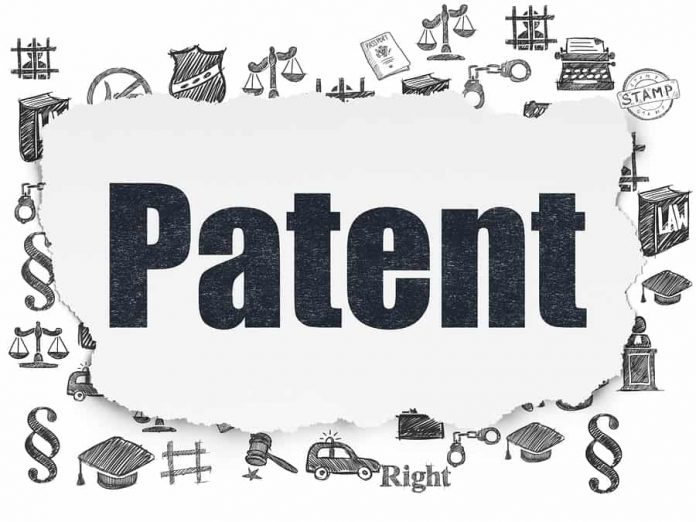This article is written by Jannat, from Chandigarh University, Mohali. The article analyzes the case Interdigital v Xiaomi.
Table of Contents
Background
A Delaware-based mobile and video R&D firm, InterDigital, has sued Xiaomi, a Chinese multinational electronics company, founded in April 2010 and headquartered in Beijing for allegedly copying its patented technology in India. InterDigital, which calls itself the world’s biggest natural research, innovation, and licensing company, has filed two patent infringement actions in the Delhi High Court against Xiaomi.
One of the lawsuits alleges violation of five InterDigital cellular 3G and 4G Indian patents, while the other alleges infringement of three InterDigital H.265/HEVC Indian patents. Years of arbitration resulted in the filing of the claims. InterDigital has stated that it can settle FRAND license terms by binding arbitration. FRAND is an acronym that stands for Fair, Rational, and Non-Discriminatory.
The Chinese court, the Wuhan Intermediate People’s Court, barred InterDigital from taking action against the anti-suit injunction in other countries: an anti-anti-anti-suit injunction.
The anti-suit injunction battle developed after licensing negotiations between Xiaomi and InterDigital were unsuccessful. Xiaomi then sued for a global FRAND license in Wuhan. In September 2020, the Wuhan court issued the ASI and AAASI (case ID: (2020) E 01 Zhi Min Chu 169). At the end of September, Interdigital countered with an AASI and AAASI from the Delhi High Court (case ID. 8772/2020 in CS(COMM) 295/2020). A month later, InterDigital filed the same applications in Munich.
Facts
The following are the facts of the case:
- The dispute between Interdigital (plaintiff) and Xiaomi (defendant) is regarding the violation of the Indian Patents IN 262910, IN 295912, IN 298719, IN 313036, and IN before320182 registered under Standard Essential Patents (SEP) held by interdigital without taking their due permission or license.
- Therefore, the plaintiff has filed a suit against the defendant demanding the decree of permanent injunction restricting the defendants to use its SEPs in their devices.
- Or as an alternative, the plaintiffs contend that the defendants can be permissible to use SEPs only if they enter into a licensing agreement with them according to FRAND i.e. fair, reasonable and non-discriminatory terms.
- However, the defendant before this case filed a SEP royalty rate-setting suit (the Wuhan suit) on 9th June 2020 before the Wuhan Court against the plaintiff. The order passed by the court on 23rd September 2020 revealed that there was no violation of the patent as the suit primarily sought for the fixation of FRAND compliant royalty rates between the plaintiff and the defendant to enable the defendant to use the SEP technology of the plaintiff.
- In addition to the present suit, the plaintiff also filed Interlocutory Applications (IAs) under Order 39 Rules 1 and 2 of the Civil Procedure Code, 1908 and Chapter VII Rule 17 of the Delhi High Court (Original side) Rule, 2018 seeking interim reliefs and set up of confidentiality club respectively.
- Summons in the current suit and notice in Interlocutory Applications 6440/2020 and 6441/2020 were issued by the Delhi High Court on 4th August 2020.
- The defendant too filed an application pleading for an anti-suit injunction before the Wuhan Court on the same day i.e. 4th August 2020 to restrain the plaintiff from pursuing the suit against them.
- Despite the ongoing proceedings in the Delhi H.C., the defendant did not inform the court regarding the pendency of the anti-suit injunction application filed by them before the Wuhan court or the issuance of notice to the plaintiff.
- The order dated 23rd September 2020 by the Wuhan court revealed that serving the summons by the court to the plaintiff is under progress and issued an anti-suit injunction in a sense of behaviour preservation.
Issues
(i) Whether the Court has jurisdiction to grant the relief sought, and
(ii) If so, whether the Court should grant the relief sought.
Arguments made by the petitioner
Arguing for the plaintiff-applicant was Mr. Gourab Banerjee, learned Senior Counsel submitted that:
- The plaintiff admits the fact that there is no direct authority to file the suit in India. Mr. Banerjee quoted judgment by a Division Bench of the High Court of Calcutta in Devi Resources Ltd v. Ambo Exports Ltd to support their claim that Indian courts are competent to grant anti-suit injunction, and secondly, in the facts of the present case, grant of such an anti-anti-suit injunction is very important to do complete justice against violation of SEPs by Xiaomi, thirdly the subject matter of the proceedings, in the suit filed in India, and that in the Wuhan suit, are different, though the cause is same. Therefore, Indian courts are qualified to hear the present suit filed by interdigital.
- The learned counsel for the plaintiff cited the rulings of the learned Single Judge of the High Court of UK in IPCom GmbH & Co. KG v. Lenovo Technology (United Kingdom) Ltd. and of the Queen’s Bench Division of the High Court of UK in Ecom Agroindustrial Corp. Ltd v. Mosharaf Composite Textile Mill Ltd. to certify their contention that If the injunction granted by the Wuhan Court is kept intact, the plaintiff would not only be stopped from seeking redressal in the present trial, furthermore no court, in the world, would be entitled to adjudicate the matter on the issue of violation of the plaintiff’s SEPs. It would lead to major unjustness to the plaintiff.
- According to the petitioners, the case is one of its kind and should not be compared to any other normal anti-suit injunction. They submitted that the ruling of the People’s Court of Wuhan to allow an anti-suit injunction against the plaintiff is unjustified and unrighteous. The plaintiff rightly deserves an anti-anti-suit injunction and has moved to this Court to protect itself, in the present proceedings, against the said order.
- The idea of anti-enforcement injunction is mysterious and new in Indian Law Practice, surprisingly in the cases of foreign jurisdictions also. The notion for an anti-enforcement injunction arises when a party seeks discretion against the enforcement of a final judgment, determining its rights.
- The plaintiff does not press for an anti-enforcement injunction. All the judgments, on which the Respondent depends, are cases where a final judgment has been passed by a court in another jurisdiction, whereas in the proceedings between the parties and determining their rights, an injunction, against the enforcement of the judgment, was sought in some other jurisdiction. There can not be any comparison, with the cases cited by the respondent, and the present case submits the petitioner.
- The suit in the Wuhan Court was to determine the global royalty rates on the FRAND basis whereas the suit filed before the Indian Court, was initiated by the plaintiff to injunct infringement of its SEPs, by the defendant. No issue of infringement of the patents was presented in the suit before the Peoples Court of Wuhan. Therefore, It would be wrong to compare the issue before the Wuhan’s Court, as similar to that before the Delhi High Court. The Wuhan Court was not concerned with the infringement of the patents and The only forum desirable to decide on the validity of the Indian patents, granted to the plaintiffs, would be an Indian court.
- The prayer: the plaintiff desires a permanent injunction against its patent infringement.
Arguments made by respondent
Mr. Saikrishna Rajagopal was the learned Counsel for the defendants:
- The respondent argued that the globally recognized tests, for the granting of an anti-enforcement injunction, by a court in one country, for an order passed by a court in another country, does not allow for the grant of such an injunction at the instance of a party that showed reluctance from participating in the proceedings before the latter forum.
- The respondent further alleged that the application, of the plaintiff, was not acceptable, as there was no prayer in the suit for an anti-suit injunction. The relief sought, in an interlocutory application under Order XXXIX of the CPC, cannot go beyond the threshold of the reliefs sought in the main suit, because of Order VII Rule 7 of the CPC and Section 34 of the Specific Relief Act, 1963.
- The Respondents have contended that while the Chinese court did not order the petitioner to withdraw their claim from the Indian court, it did give them the option of withdrawing the suit or suspending its trial in India, so there was no overt intervention by the Peoples Court of Wuhan in the proceedings in India.
- Furthermore, the respondent argued that the plaintiff in the present application, was seeking neither an anti-suit injunction, nor an anti-anti-suit injunction, but instead was pressing for an anti-enforcement injunction, restraining the enforcement of an order issued by a foreign court. The defence pleaded that though this Court has the power to grant such an injunction it should not use it in this case. They allege that such an injunction should only be put into effect in extraordinary and rare circumstances. One of the considerations which would prevent the granting of any ad-interim relief, in the present application would be the conduct of the plaintiff.
- The respondent submits that an anti-injunction application, preventing the execution of enforcement of an order passed by a foreign Court, can be granted only if the order has been procured by fraud, or if the parties agreed not to enforce the order after it was passed leading to the breach of the said agreement, or if the plaintiff was devoid of the knowledge that the order would possibly be passed, to prevent it by way of filing an anti-suit injunction application. If, however, the plaintiff, due to his negligence and lack of diligence, has allowed the anti-suit injunction proceedings, in the foreign Court, to proceed and culminate in the issuance of an anti-suit injunction order, in that case too the injunction would not be granted.
- The defence counsel further pleaded that the suit filed in China, by the defendants against the plaintiff was before the suit filed in India. Hence the preference should be given to the application filed in China, seeking an anti-suit injunction against the passing of the present suit in India.
- The plaintiffs had relied upon the judgments in The Computronics International Ltd v. Infinite Computer Solutions (I) Pvt Ltd. and Bharat Petroleum Corporation Ltd v. Hari Chand Sachdeva, 2007 and have chosen not to amend the suit, or include any prayer for grant of an anti-suit injunction.
Reasoning
By granting such an injunction, the courts in India are not interfering with the sovereign jurisdiction of a foreign judicial authority. It is merely injuncting the implementation of the order passed by the foreign judicial authority, within its territories. If the court is of the view that one of the parties before it has deprived the other party of a constitutional right, which is available to such other party under the laws of this country, it has an authority to protect the right of the aggrieved party. The conditions under which an anti-suit injunction, for the proceedings pending in a foreign Court, can be granted by an Indian court is explained in detail by the Supreme Court of India, in Modi Entertainment Network1 which was later followed by Dinesh Singh Thakur v. Sonal Thakur.
Judgment
The court ordered to pass an ad-interim injunction, in terms of the prayer made by the plaintiff in the present application. The reliefs sought in the application that the only plausible way for a SEP holder to move things ahead, is to bring an infringement action. If the proceeding against the defendants is ended, there would be no deterring factor left to violate the plaintiff’s patents.
Until the other remedies available in India are not exhausted by the defendants, they are not allowed to enforce the order of the Wuhan Intermediate People’s Court, in the anti-suit injunction application, preferred by them before, against the plaintiffs.
Conclusion
In the meantime, in February 2021, Xiaomi suffered yet another jolt in its global SEP feud with InterDigital. The Regional Court of Munich has prohibited Xiaomi from enforcing an anti-suit injunction from a court in Wuhan last year. InterDigital is now eligible to file patent infringement suits against Xiaomi in Germany also, though it is speculated that they are not going to do so. Xiaomi is no longer allowed to enforce an anti-suit injunction from the Wuhan Intermediate People’s Court against InterDigital in Germany, hence strengthening InterDigital’s claim of foul play against Xiaomi.
The German court has also quoted the judgment given by the Delhi high court, showcasing the significance of the Indian judgment, stating that if the court had favoured the respondents, then it could have debarred the plaintiff to seek justice from anywhere else in the world, thereby exhausting its scope of availing legal remedies. Therefore, the judgment is a landmark due to the uniqueness of its circumstances and issues, providing a touchstone for further cases.
Reference
LawSikho has created a telegram group for exchanging legal knowledge, referrals and various opportunities. You can click on this link and join:
 Serato DJ Crack 2025Serato DJ PRO Crack
Serato DJ Crack 2025Serato DJ PRO Crack









 Allow notifications
Allow notifications


